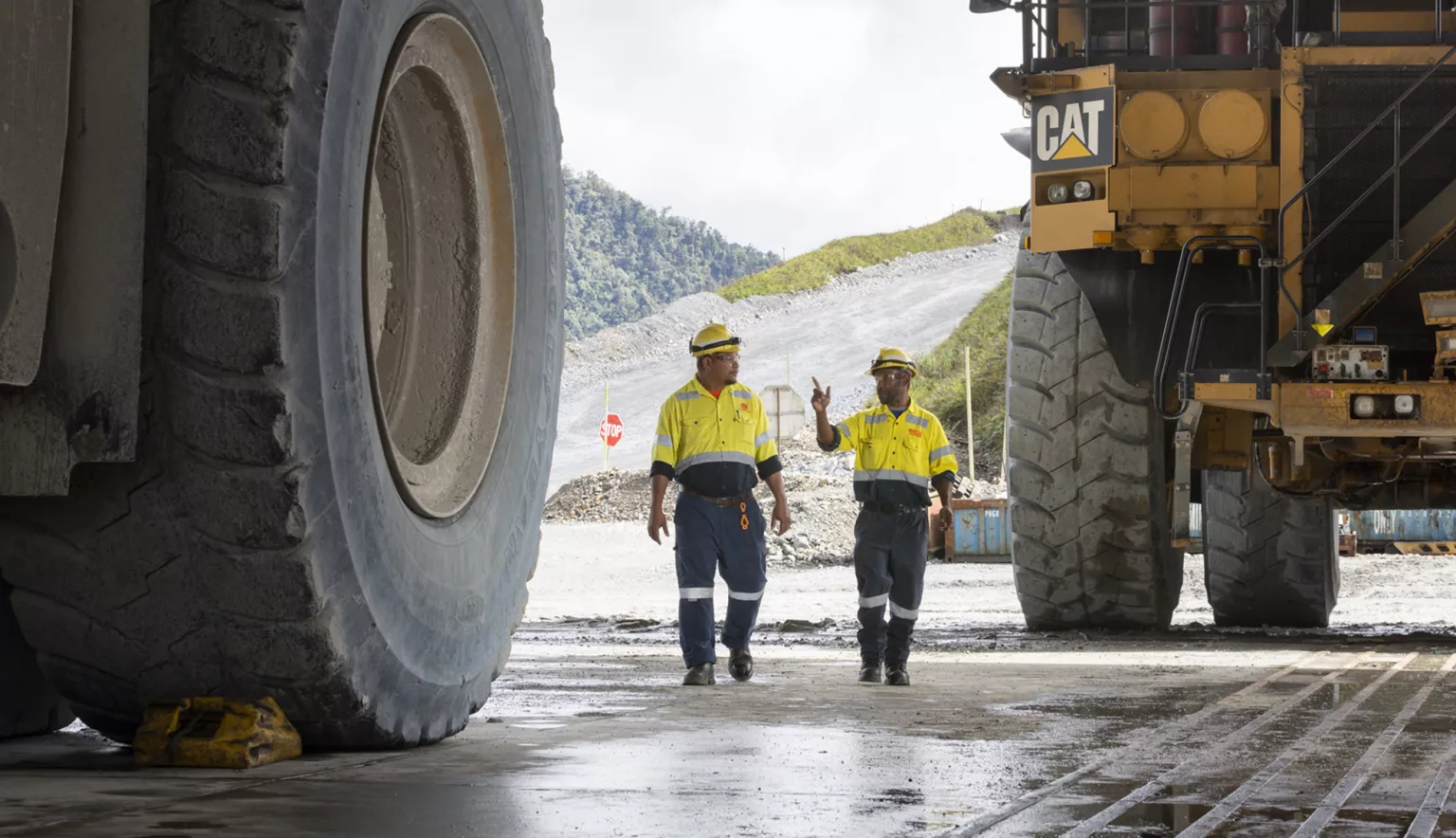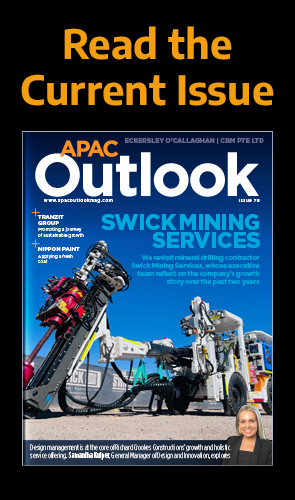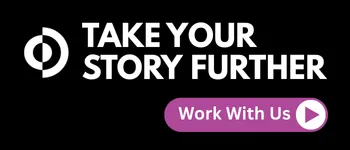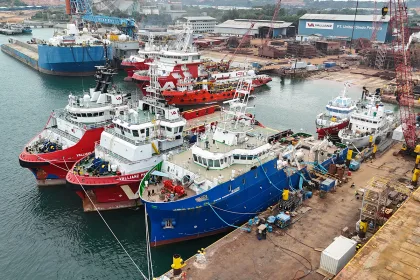COMMUNITY MINE CONTINUATION AGREEMENT
An integrated compensation and development package are provided to the communities for their economic and social benefit. This is both a moral and legal obligation that OTML must meet, as enforced by legislation passed by the National Government of Papua New Guinea in November 2001.
The Community Mine Continuation Agreement (CMCA) defines the cash compensation, investment and development payments that OTML makes to the 158 communities impacted by the mining operations in return for the license to continue operating the mine until 2025. The communities are grouped into nine regions of over 147,000 people. The nine CMCA regions extend from the mine to the South Fly. These are: Mine Villages, Highway, North Ok Tedi, Lower Ok Tedi, Middle Fly, Suki Fly Gogo, Manawete, Kiwaba and Dudi.
A total of 36 elected community members consist of the CMCA Working Group and attend the delegates meeting along with the government representatives, OTML, churches, women and youth organisations and NGOs. Each region is represented by four community members, including at least one woman. The mine continuation funding is seen by the CMCA Working Group members as a lever for change leading to a self-supporting sustainable future without OTML.
CMCA AND MINE VILLAGES UPDATES
The Community Relations Department (CRD) conducts biennial and annual population and family listing updates for the nine CMCA Trust regions including the six mine villages. The cash payments to the beneficiaries are calculated based on the population of respective regions and directly disbursed to family accounts via the online banking system.
PEOPLE AND CAPABILITY
Mark Stone is the General Manager of People and Capability at Ok Tedi. With a strong family connection to mining, there wasn’t a question over which direction his career would take. “I’ve been in the mining industry since I left school and my family have always been involved in mining,” he explains. “My father was involved since he was a kid, his father was too and so was my brother, so it was those family roots that got me started.
“I started work in Newcastle which is an Australian coal mining centre. I then worked in several places across Australia, but I have always had an ambition to work overseas so I spent a good deal of time across the Americas and also a bit of time in Africa as well. But that’s what I love doing. Mining has a very special feel and culture to it and people are always wonderful wherever you go in this industry. Mining is in my blood.”
And the pull of exciting new projects is hard to resist for Stone. Reflecting on how his journey took him to Papua New Guinea and Ok Tedi in the first place, he jokes he was relaxing in Panama, where he was then based, when the call came. “I was actually living on the other side of the world,” he recalls. “I had finished a project in South America, and I was contacted to ask if I was interested in applying for the position at Ok Tedi. Back in my early days working at BHP, I came up to PNG a long time ago, so I had a little bit of an insight into the company which stood me in good stead.”
To Stone, from the outside looking in, he could see the true potential of what the country could be. “PNG has great opportunities and capabilities, and there are fantastic people here,” he affirms. “Fortunately, my interview went well, and they felt I was a good fit and here I am, three years later.”
And it was in those three years that the world changed dramatically from the one when Stone began working at Ok Tedi in August 2018. He admits that, as a result of the pandemic, the space is both exciting and challenging in equal measure. “It’s challenging because the whole world economy is obviously turning and in some respects that is quite positive because it has pushed the metal prices up but it’s all very unreliable because you don’t know when that could change again,” explains Stone. “The difficulty is ensuring we’re competitive no matter the price environment. My role is to ensure the people are behind that challenge and are making a difference.
“At Ok Tedi, we’ve set ourselves a vision of where we’d like to be over the next three to five years and people are a big part of that. This is what I do, what I love and what I get excited about.”
Ok Tedi places considerable emphasis on being regarded as the only PNG-owned mining company, something that Stone believes is hugely important because it is about working for the country in which it operates. “We’re not the only PNG mining company but we’re the only PNG-owned one and that is special,” he believes. “Giving back to PNG drives the way we operate the company because we have a very clear vision that our job is to create dividends for the benefit of PNG. For me, that’s a huge source of pride.”
As a result of Ok Tedi’s arduous location, things can go wrong. However, it is the workforce’s unity and dedication that shines through, according to Stone. “Our culture is spectacular,” he beams. “It’s a challenging location and we have all sorts of things that could go wrong, such as earthquakes. We are very dependent on the river for our product to go out and supplies to come in. The river is very dependent on rainfall and we have dry spells where that stops happening. There are plenty of challenges in front of us, the big one being COVID-19, but there is something about the workforce because when they focus on a challenge, everyone works together and that is special.”
Indeed, COVID-19 has disrupted companies in all industries across the world. Ok Tedi understood the magnitude of the pandemic from the onset and quickly established an incident management planning team to mitigate against the virus. Initially, this worked well, however, in August 2020, the company was dealt a blow. “We had to shut down our operations for six weeks,” says Stone. “We had our first positive case and very quickly this spread to being around 180 cases company-wide. This led to us making permanent changes upon restarting operations.”
And those permanent changes involved changing the roster to provide a longer rotation so that personnel travel in and out of site fewer times per year. “As COVID is going to be with us for a while, we formed a Business Continuity department and their role is to continuously monitor the global, national and local situation and check whether the measures we have in place are the right ones and make recommendations,” explains Stone. “This served us well until the end of 2020. However, in January and February, we did start to see a rise in positive cases so we tightened up our measures again.”



































